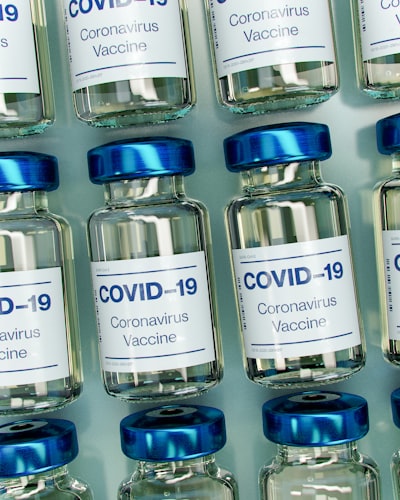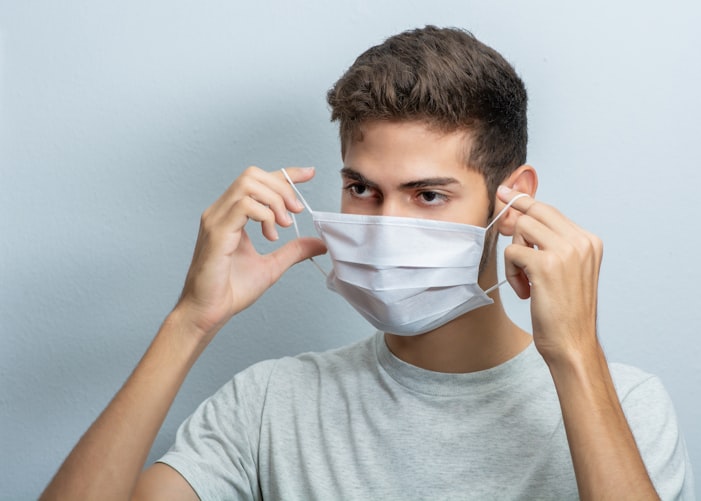The recent rollout of COVID-19 vaccines offers reason for hope that we may finally be turning a corner in fighting this global pandemic. While studies have found the vaccines to be highly effective, they don’t eliminate the need to continue taking the precautions that have been advised since the beginning of the coronavirus outbreak.
As with so many other aspects related to the pandemic, there are still a lot of unknowns surrounding what the vaccine can (and can’t) do. Because of this, health experts are advising that everyone continue to wear face masks in public.
So What Do the Vaccines Do?
The fact that vaccines that have been deemed safe and effective against the coronavirus were produced so quickly is a medical miracle. While it typically takes several years for a vaccine to get finalized and approved for use, two COVID-19 vaccines have been tested and deemed to be highly effective in protecting people from severe symptoms.
With the United States experiencing record-breaking case numbers every day — well beyond the initial peak that occurred during the summer — the need for a vaccine has never been more vital. Emergency use authorization from the FDA is designed to get the vaccine out as quickly as possible to help stem the tide and get life back to normal.
As CNN medical analyst Dr. Leana Wen explains, “What we know is that the Pfizer vaccine is very effective at preventing symptomatic illness and severe disease. That means the vaccine appears to prevent people from getting sick enough that they develop symptoms, and very importantly, it prevents people from becoming so severely ill that they end up in the hospital. This is really great news. Here's what the studies don't yet show. They haven't looked at whether the vaccine prevents someone from carrying COVID-19 and spreading it to others. It's possible that someone could get the vaccine but could still be an asymptomatic carrier.”
Part of the reason for this is because of how the vaccine is distributed. In an article for the New York Times, Apoorva Mandavilli notes that when dealing with respiratory viruses like COVID-19, “mucosal vaccines” — or nasal spray-style vaccines — tend to perform better. With an intramuscular injection, there is still the potential for virus “bloom” in the nose.
As has been determined throughout the pandemic, this means that someone could be an asymptomatic carrier of the virus. They may feel totally fine, but could still spread the virus to someone else who could experience severe symptoms.
This is part of the reason why the vaccine is initially being distributed to individuals in high-risk categories and frontline emergency healthcare workers. Reducing their chance for experiencing severe symptoms will save lives by reducing the strain on hospital systems.
The Continued Importance of Masks
While getting the vaccine will certainly be important in the coming months, it clearly does not yet eliminate the need for wearing face masks. In fact, in the CNN interview cited earlier, Dr. Wen noted that roughly 70 percent of the U.S. population — or 230 million people — will need to be vaccinated before we can achieve herd immunity that truly stops the spread. The first shipment of vaccines is enough to vaccinate roughly 1 percent of the population.
These shots are not single-dose vaccinations, either. Both of the COVID-19 vaccines that have been introduced are two-dose vaccines, meaning nearly half a billion vaccines will need to be distributed.
Needless to say, distributing that many vaccines will take a lot of time. There are also several groups that won’t be able to receive the vaccine initially, including children or those with certain medical conditions.
The vaccine provides an important layer of protection, but that doesn’t negate the need for other protective measures. As University of Arizona immunologist Deepta Bhattacharya explained in the previously mentioned New York Times article, “Preventing severe disease is easiest, preventing mild disease is harder, and preventing all infections is the hardest. If it’s 95 percent effective at preventing symptomatic disease, it’s going to be something less than that in preventing all infections, for sure.”
Quite simply, you likely don’t know if others around you have the coronavirus — or if you are currently infected and asymptomatic. Continuing to wear a mask when around people who aren’t part of your own household protects yourself and others, even after you have been vaccinated.
It will be up to individual states to decide the timeline for when different groups get the vaccine. This will largely be determined based on factors like underlying health conditions, age, and working in high-risk or essential roles.
Get What You Need From No Insurance Medical Supplies
Clearly, even with the vaccine rollout underway, it is still vital that everyone continue taking steps to protect themselves and others from COVID-19. Here at No Insurance Medical Supplies, we have many of the products you need for these uncertain times, including N95 respirator masks, hand sanitizer, and disinfectant cleaner.
By using such items, you can limit your risk of exposure and keep your home clean and sanitary. This is especially important for those who are using CPAP machines, and are therefore at a higher risk for severe complications from the coronavirus.
We’re not through the pandemic yet — but hope is on the horizon. Continue to exercise recommended precautions before and after receiving the vaccine, and you can make a meaningful difference for yourself and others.


